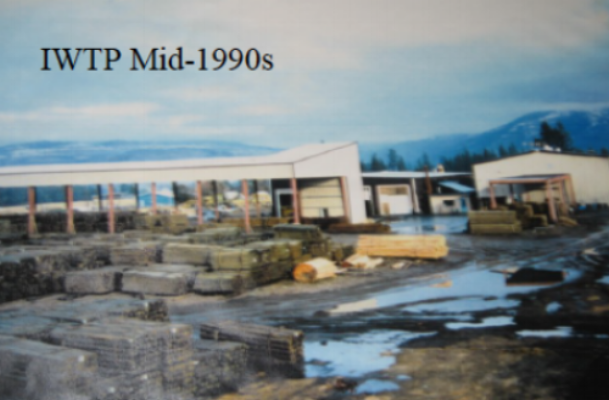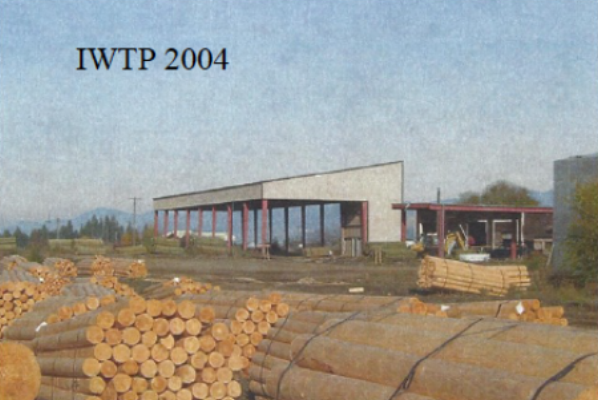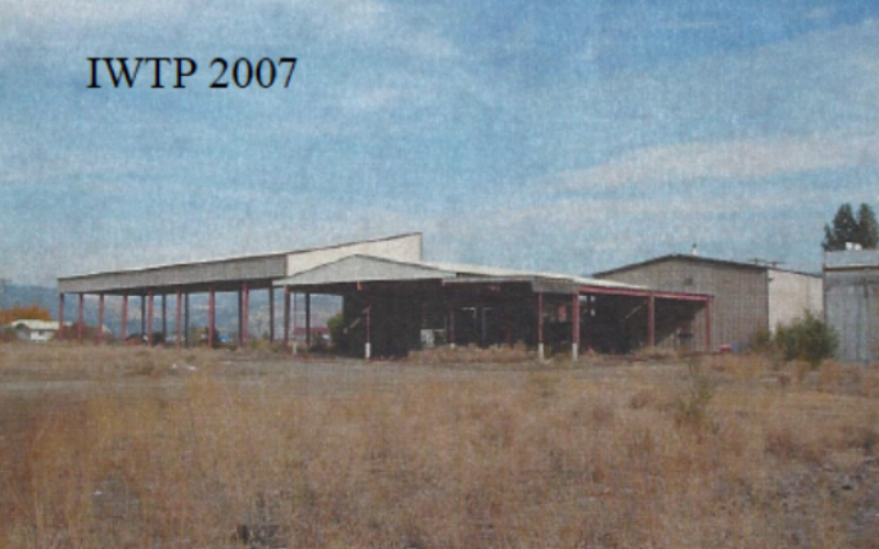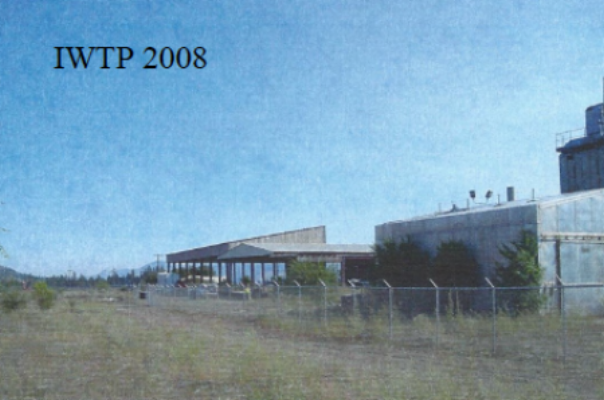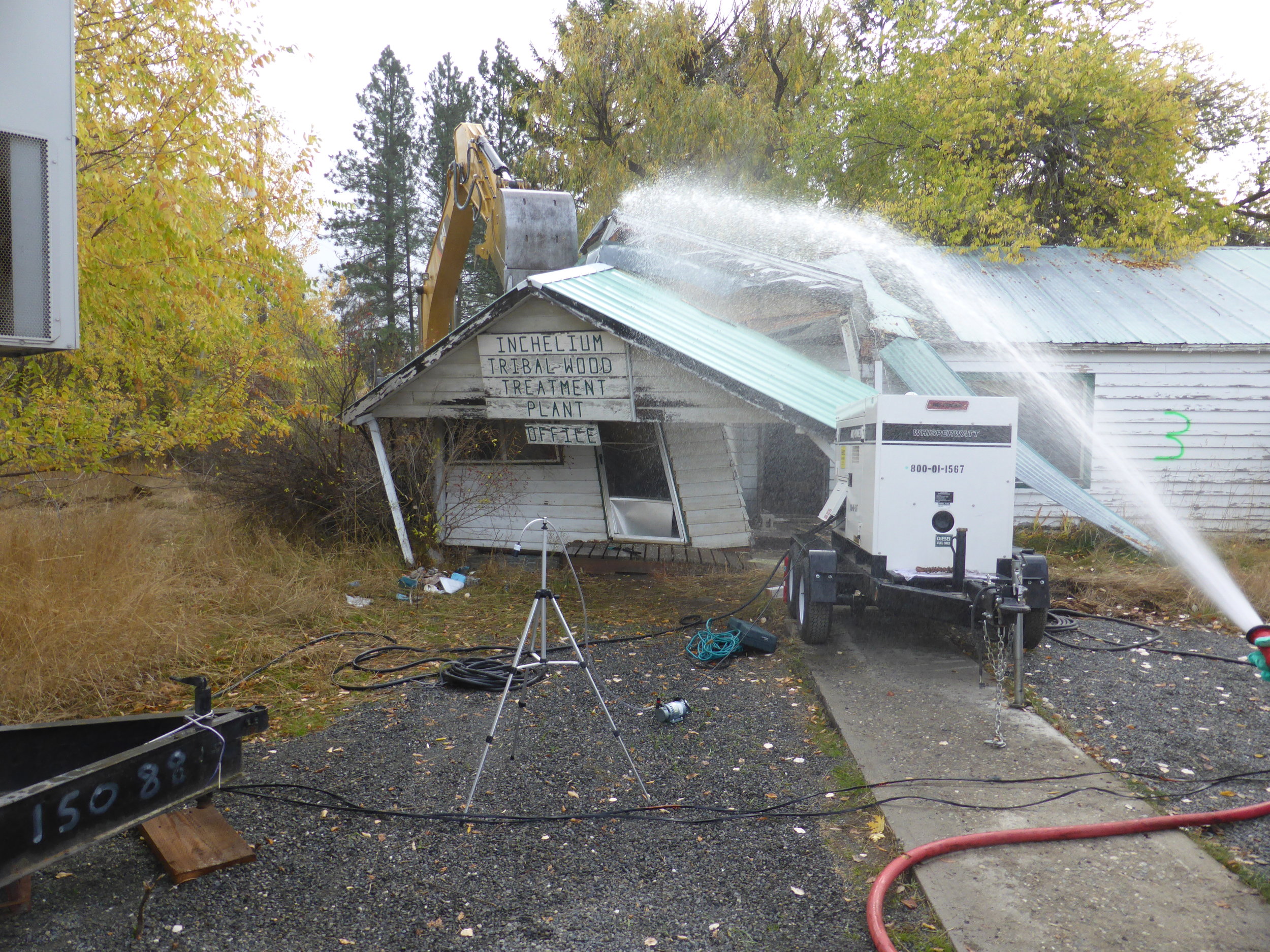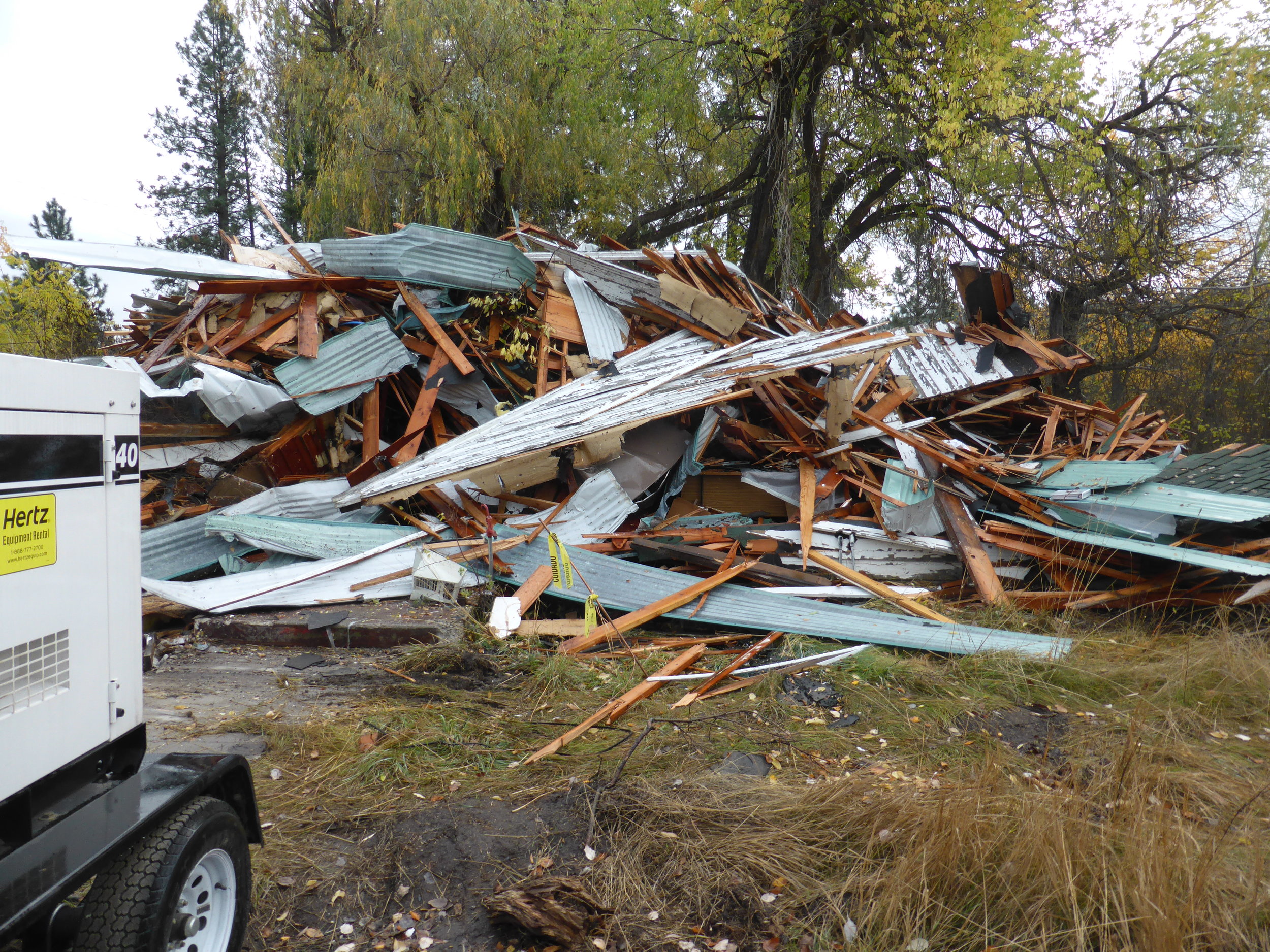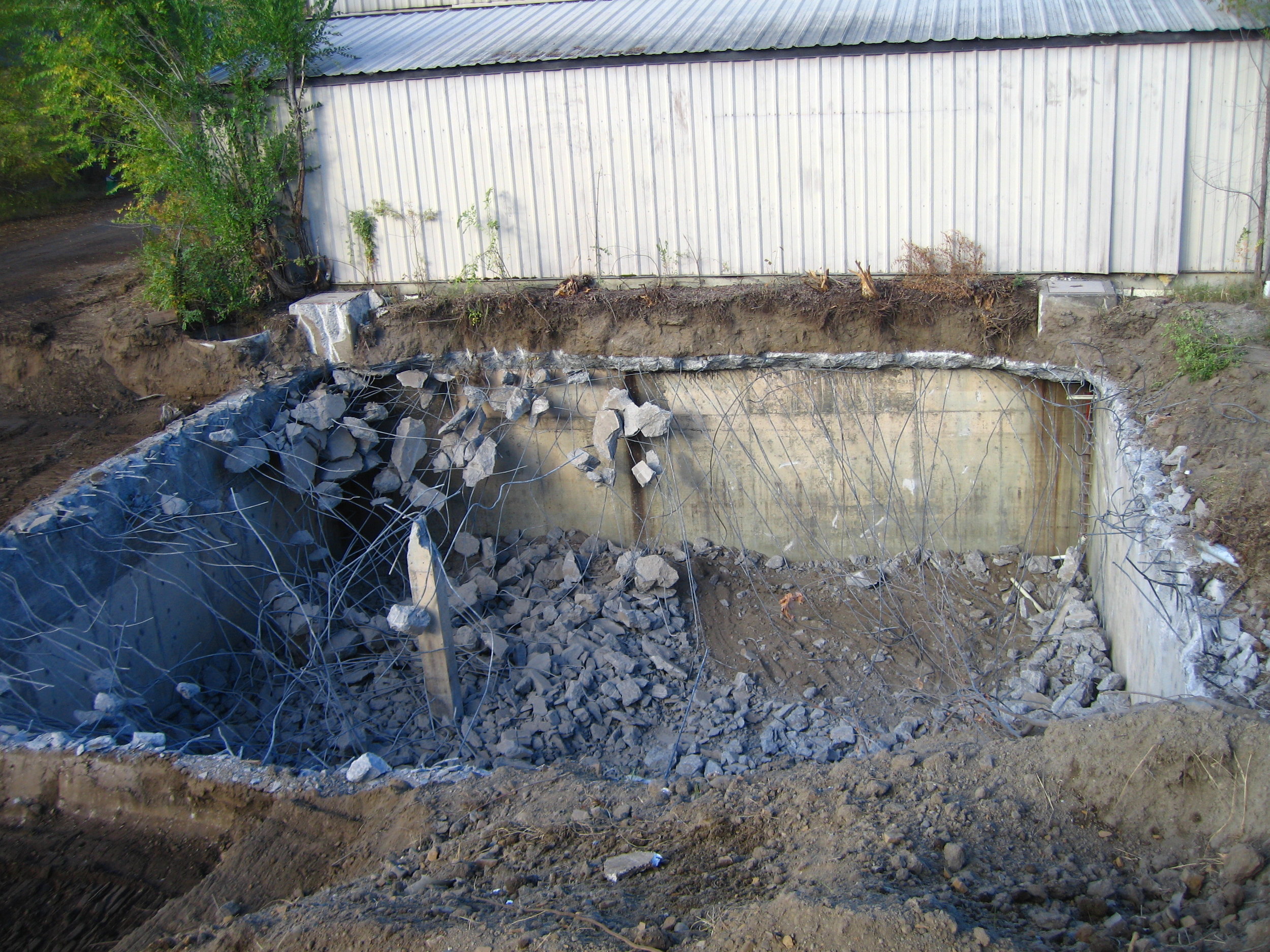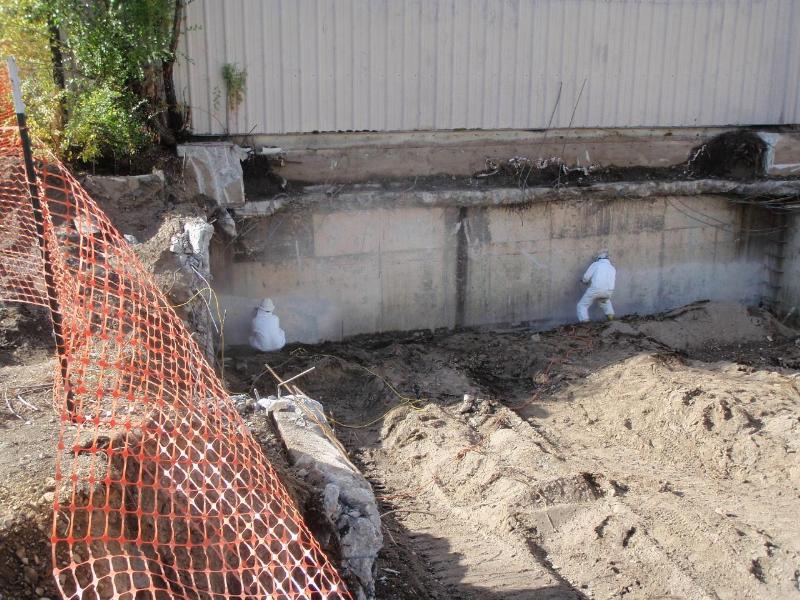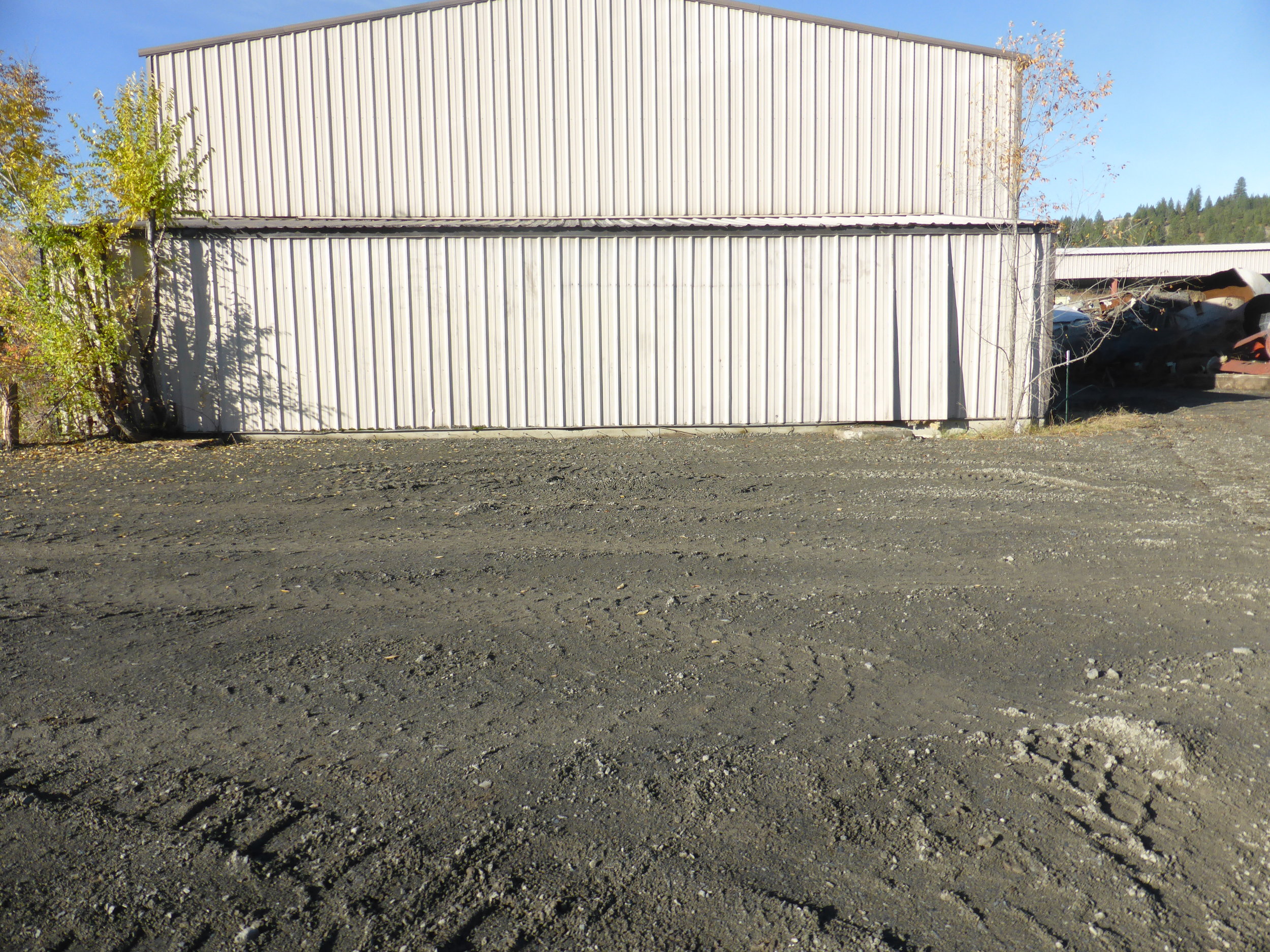2014 Inchelium Wood Treatment Plant Cleanup
HISTORY of the Inchelium Wood Treatment Plant (IWTP) dates back to the mid-1950s. The facility was originally constructed as an equipment maintenance facility by Lincoln Lumber Company and later purchased by Boise Cascade Corporation. The Confederated Tribes of the Colville Reservation (CTCR) purchased the Boise Cascade property and constructed a pressurized wood treating facility at the site in the mid-1980s. At about the same time, the property was converted to trust status and facility management was transferred to Colville Tribal Enterprise Corporation (CTEC). The IWTP facility operated from 1985 to 2006 when CTEC voluntarily ceased wood treating operations due to continued annual losses and increased awareness of significant environmental liabilities at the facility.
The IWTP utilized chromated copper arsenic (CCA), a metal-based pesticide, throughout its history as a pressurized wood treatment facility. CCA is a listed hazardous waste (FO35) under the Environmental Protection Agency’s (EPA) Resource Conservation and Recovery Act (RCRA) regulations.
In 2006, the IWTP was inspected by an EPA RCRA Enforcement Officer and found that the facility had been operating without a valid RCRA permit from the date of initial construction of the wood treatment portion of the facility. In addition, multiple “moderate to major violations” of the RCRA regulations were documented. Major violations included unpermitted storage of hazardous waste in tanks, inadequate training and personal protection, unlined drip pads, and failure to register as a hazardous waste generator. EPA wrote a 17 page summary ofinspection findings and the lead Enforcement Officer reported that inspection ofIWTPhad resulted in more violations than any other inspection performed over the course of her career as a RCRA inspector.
In September 2008, the EPA issued CTEC a Consent Agreement and Final Order (CAFO) under RCRA. Major requirements under the order include producing an EPA Approved Hazardous Waste Closure Plan and Used Oil Plan, initial cleaning and sealing of tanks, sumps and drip pads, elimination of illegal storage of hazardous waste, and establishing of financial assurance necessary to guarantee implementation of the closure plan.
The CAFO concluded that un-permitted disposal of FO35 listed hazardous waste had occurred in the Treated Wood Storage Area and the Drip Pads. Further, the CAFO documented that CCA had been released to the concrete floor of the Treatment Building and, Retort Chamber Sump. Bare soil beneath Treated Wood Storage Areas located outside the canopied areas of the facility was also affected by CCA draining from stored treated wood. Near surface groundwater beneath IWTP shows impact from both CCA and petroleum products at concentrations that exceed tribal standards; however current geological investigations indicate that contaminant levels are stable or decreasing with time (since the shut down of the facility in 2006) and do not represent an imminent threat to the Inchelium drinking water aquifer or nearby Stranger Creek.
CTEC submitted a draft Closure Plan to EPA for review in 2009. From 2009-2012 CTEC gradually removed most stored CCA product and CCA waste at the facility but in general, progress to fulfill therequirements under the enforcement order did not conform to CAFO requirements. By the end of 2012, CTEC’s work to complete closure planning, minimize hazardous waste generation, and clean up oil contaminated soil at IWTP stalled and eventually was abandoned in conjunction with major reorganization of CTEC assets and liabilities.
Cleanup of the IWTP is anticipated to began during the summer of 2014 and will be overseen by the Colville Tribes Environmental Trust Department (ETD). The cleanup will focus primarily on removal and off-site disposal of CCA contaminated soil and concrete. Other than the structurally unsound Maintenance Building, no demolition of uncontaminated buildings is anticipated as part of the initial cleanup effort at the site. The site will be cleaned up to commercial/industrial standards. Projected cost tothe Colville Tribes to remediate CCA contaminated media at IWTP is estimated at $3 million.
Funds for the cleanup will come from a $3 million loan at 2.5% interest from the tribes Qwam Qwmpt Restoration Fund (Resolution 2013-927). Repayment ofthe ten year loan will be funded by$5 per thousand board feet (Resolution 2013-331) ofall timber sales on the Colville Tribal Property. These funds are administrated by the Environmental Trust Department and earmarked for environmental cleanup of a prioritized list of contaminated sites within the boundaries of the Colville Reservation..
IWTP cleanup plan activities in 2014 and 2015 will include:
· Hiring a hazardous waste contractor to implement the IWTP cleanup plan.
· Containerize and dispose of FO35 hazardous waste accumulated in aboveground storage tanks, retort sump, and underground storage vault.
· Remove and dispose off-site all soil and concrete with CCA contamination above EPA-approved commercial/industrial cleanup levels at IWTP site.
· Resume implementation of Used Oil Plan: Backfill open pit beneathMerchandiser, investigate extent of PCS and affected groundwater with four borings, two new groundwater monitoring wells.
· Conduct annual groundwater monitoring and reporting with a 5 year review.
· Hire an ETD Remediation Specialist to provide quality control oversight and documentation during cleanup activities at the site.
Future plans for the site are yet to be determined. Soils at the site will be cleaned up to levels that are safe for industrial and commercial use as long as groundwater monitoring continues to document decreasing contaminant concentrations over time, and plume stability relative to surface waters and deeper potable water aquifers.
Reports including background information on this site are available for review during regular business hours from 7:30 am - 4:00 pm at the Colville Tribes Environmental Trust Repository located at 12 Belvedere Street, Nespelem, WA 99155.
For more information contact:
Colville Tribes Environmental Trust Department | Don Hurst, Response Program Manager | P .O. Box 150, Nespelem, WA 99155 | Work Phone: (509) 634-2421| Fax: (509) 634-2422 | Email: don.hurst@colvilletribes.com

